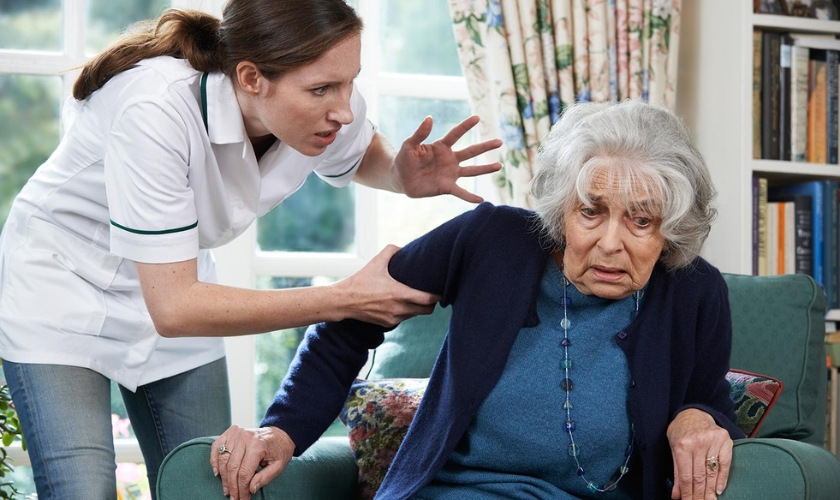
When you begin to worry that a loved one may be abused in a nursing home, it’s a sickening sensation. You have faith that the people will care for them with kindness, but something doesn’t feel right—unexplained bruises, personality shifts overnight, or inexplicable health changes. I know how difficult that moment is, and I want to help you know exactly what to do next. As your Springfield, MO Nursing Home Abuse/Neglect Attorney, I walk families through these difficult circumstances step by step, beginning with what evidence actually counts.
Identifying Early Warning Signs of Abuse or Neglect
Even before you assemble a single record, it begins with what you observe. Abuse often doesn’t leave telltale marks. Some of the most revealing signs are:
- Unexplained bruises, fractures, or bedsores
- Weight loss, dehydration, or sudden deterioration in health
- A behavior change—fear, withdrawal, or agitation in the presence of specific staff
- Poor personal hygiene or a dirty environment
- Lost personal items or money
If any of this rings a bell, it’s time to take action. The National Council on Aging estimates that one in six older adults is a victim of institutional care. That statistic should never be dismissed.
What Evidence Helps Win a Nursing Home Abuse Case
The goal is to prove that the nursing home failed in its duty of care and that failure caused harm. To do that, you’ll need a mix of medical records, witness statements, and documentation that clearly tell the story of what happened.
1. Medical and Health Records
Hold onto every doctor’s note, hospital discharge summary, and care plan update. These documents assist in connecting injuries or illnesses to substandard care. If your loved one acquired bedsores, malnutrition, or infections that were not treated promptly, those documents are effective proof.
2. Witness Statements and Staff Records
Care workers, fellow residents, and even family members visiting may have noticed or overheard something significant. Get them to write down these observations. Shift logs, staff records, or internal complaints can disclose whether neglect was due to understaffing or disregarded warning signs.
3. Photos and Videos
If you notice any injuries or unsanitary living conditions, photograph them immediately. Date and keep them safe. These photos tend to have the most significant effect in demonstrating neglect.
4. Facility Policies and State Inspections
Each nursing home has to meet strict federal and state standards of care. Inspection reports, staff training records, or citations from regulators may reveal a pattern of violations. If the home had been previously cited for the same issues, your argument is stronger.
5. Financial or Administrative Records
Financial exploitation is a more frequent type of abuse as well. Look for unexplained withdrawals, lost funds, or disputed credit card use. Documentation of mismanagement or persistent understaffing can also establish an overall issue at the facility.
Documenting Suspected Nursing Home Abuse
Don’t wait for evidence to land in your lap if you suspect something’s amiss. Start collecting it instead. Taking early action is crucial. Here’s what I suggest:
- Document injuries or hazardous situations with photographs or video.
- Keep a daily record of whatever you notice—mood changes, missed meals, unusual medical interventions, or rapid deterioration of health.
- Ask for copies of medical and care documents.
- Get names and contact information of witnesses.
Make management at the facility aware of your concerns and maintain copies of all messages or reports you send.
Call an experienced attorney early. We can help maintain evidence before it’s destroyed or lost, providing you with security and confidence in your case.
These steps will keep your loved one safe today and strengthen your claim later. It’s about being informed and prepared.
What Missouri Courts Expect in Abuse or Neglect Claims
In Missouri, the legal requirement for nursing home abuse or neglect claims typically involves four elements:
- The facility or personnel had a duty of care.
- They violated that duty through abuse or neglect.
- That violation resulted directly in harm.
The resident incurred damages—such as bodily injury, emotional distress, or extra medical expenses.
Missouri courts are serious about these cases, but evidence is what matters. The better your evidence, the more it is evident that the nursing home’s deficiencies—not illness or aging—led to the injury.
How Attorneys Demonstrate Understaffing and Neglect
The most significant issue I find in these cases is long-term understaffing. It’s not merely an in-house issue—it directly affects care. Here’s how I assist in demonstrating it:
- Reviewing time sheets and comparing them to staffing requirements
- Analyzing logs that show unanswered calls for help
- Reviewing turnover rates or hiring freezes
- Using expert testimony to show what adequate care should look like
Understaffing often explains why neglect happens and can help establish the facility’s larger pattern of failure.
Steps to Take Right After Discovering Neglect
If you’ve just found signs of abuse or neglect, here’s what to do:
- Ensure your family member is safe and gets medical attention right away.
- Take photos of injuries and living situations before they are “cleaned up.”
- Report the situation to Missouri’s Adult Abuse and Neglect Hotline (1-800-392-0210).
- Get all care and accident reports from the facility.
- Contact a reliable attorney to advise you on how to save and review the evidence.
- Moving quickly matters in both the investigation and possible recovery.
- Per arbeitspflichtige Beihilfe
Most claims in Missouri must be made within five years, but certain situations cut that in half. It is best to discuss with an attorney right away if you feel abuse has occurred.
That’s one of the most frequent defenses. With accurate medical records and expert analysis, we can frequently demonstrate that the injuries were preventable and resulted from substandard care.
Yes. Settlement is often a preference for many families because it’s faster and less painful, but we can always go to trial if the facility won’t accept accountability.
The Emotional Toll and Why Legal Assistance Matters
Abuse and neglect injure residents and families, too. Guilt, frustration, and helplessness can be debilitating. Having a lawyer on your side allows you to be with your loved one during their healing while I take care of the investigation and handling of the facility. You should be heard, respected, and supported throughout the process.
How to Choose the Right Lawyer
Find someone who specializes in nursing home abuse and neglect cases, speaks plainly, and truly cares about whom they represent. You need someone who will listen, clarify things, and advocate for justice without confusing you with legal terminology.
As your Springfield Attorney who handles Nursing Home Abuse/Neglect cases, I provide exactly the type of assistance you need.
Litigation vs. Settlement: What’s the Difference?
Each case is different. In some instances, a settlement provides immediate relief and guards other residents from subsequent injury. In other instances, court action is required to hold a facility accountable. I will guide you through each of these avenues, discuss the advantages and disadvantages, and ensure that you feel at ease with the path we pursue.
Sheltering Loved Ones from Future Harm
Once your case is launched, prevention becomes the next objective. Watch for typical risk factors—dementia residents, substantial care requirements, or few visitors tend to have greater risks of neglect. Monitor closely, visit frequently, and ask tough questions regarding staffing and care plans.
Personal Injury Attorney — Standing Beside You
As your tireless advocate, I combine compassion and strategy. My mission is straightforward: defend your loved one’s rights, reveal the truth, and ensure accountability by holding the facility accountable.
If you think someone you care about has been victimized by neglect or abuse, wait no longer. Let’s discuss your evidence, explore your possibilities, and take action that brings your family peace of mind.





